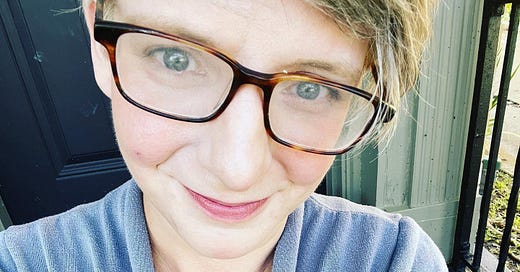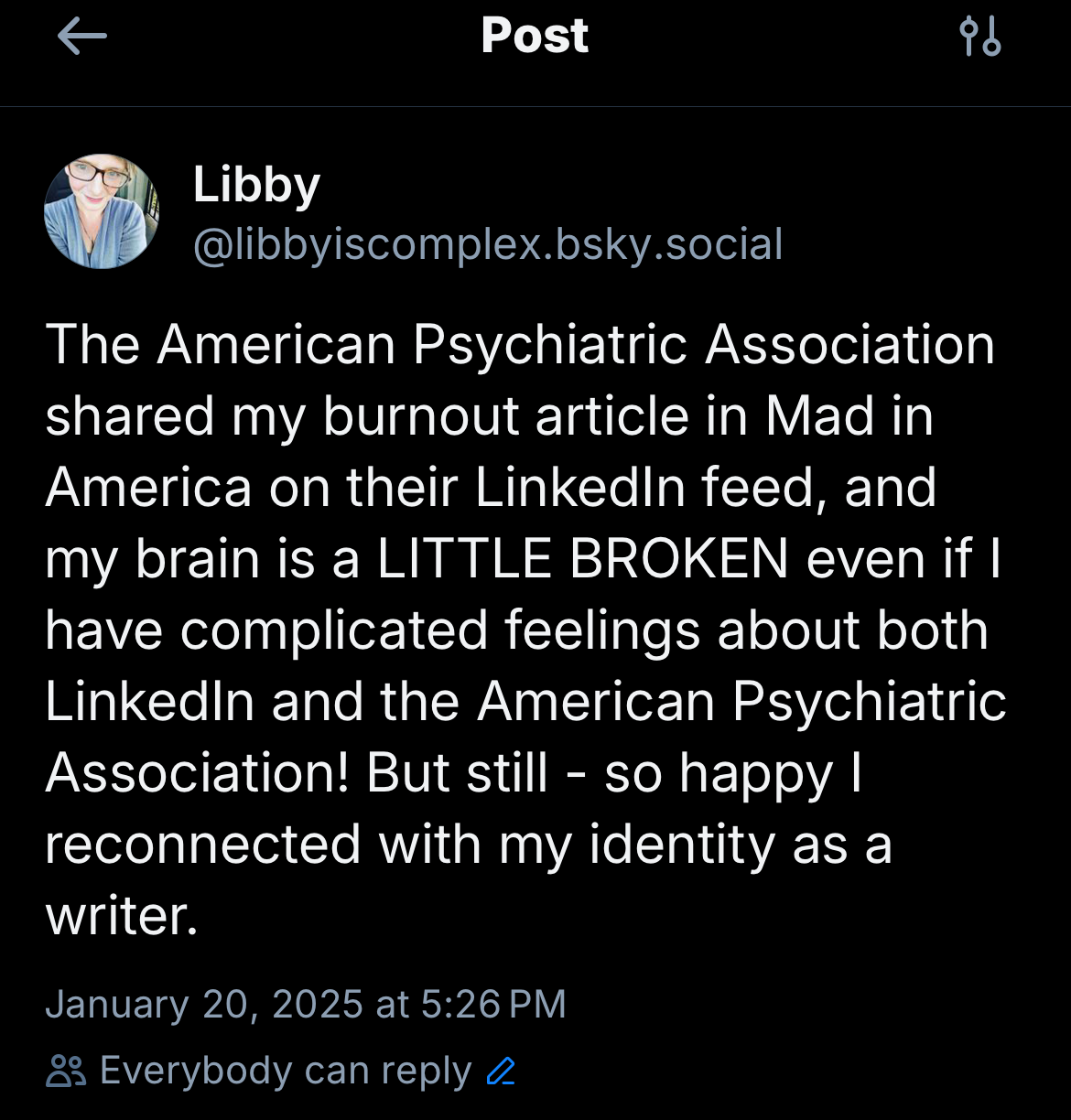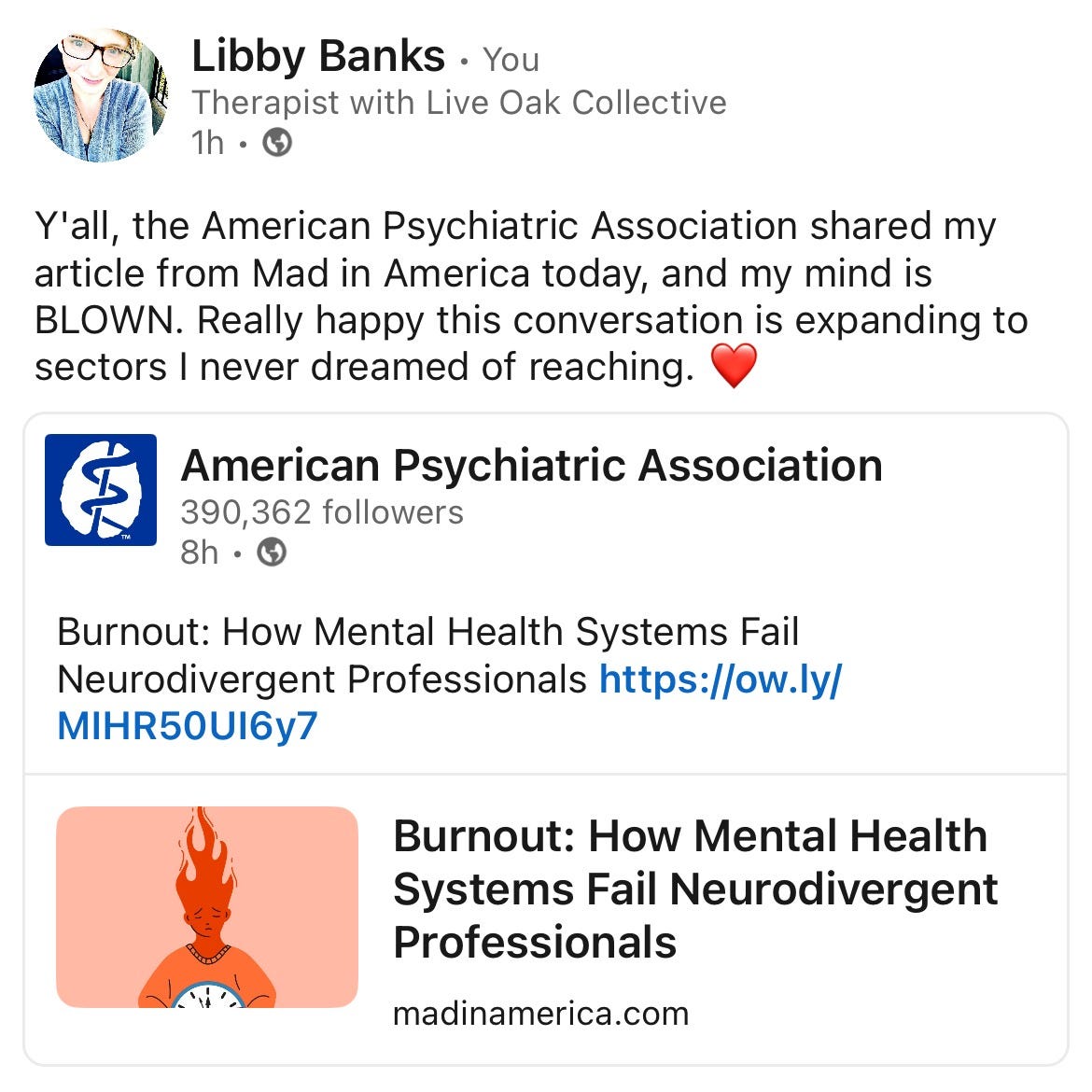Today, the American Psychiatric Association shared my article, Burnout: How Mental Health Systems Fail Neurodivergent Professionals, on their LinkedIn feed. For a brief moment, it felt like my work was breaking into a larger conversation. But shortly after, the post disappeared.
I can’t say for certain why they took it down, but I’ve been reflecting on the timing. Around the same time as its removal, I shared a VERY gentle critique on Bluesky about the APA’s history as well as LinkedIn’s glorification of productivity and capitalism. In hindsight, perhaps this combination made the article feel like a bad fit for their platform—or at least for the image they wanted to present.
I’ll admit, it wasn’t my most professional moment. Simultaneously critiquing LinkedIn and the APA while my work was being shared there was poorly timed. At the same time, the critique was careful and nuanced, not inflammatory. It’s a tension I’m still unpacking: how to stay true to my values while navigating spaces that don’t reward honesty or complexity.
This moment, for me, highlights the challenges of engaging with institutions that are still learning about what accountability looks like. If institutions like these want to meaningfully address systemic issues like burnout, discomfort has to be part of the process. Progress requires engaging with critique, not shutting it down.
This situation also underscores the systemic dynamics at the heart of burnout. It’s not just about overwork—it’s about the emotional labor of navigating systems that praise you when your voice fits their narrative and quietly erase you when it doesn’t. For neurodivergent professionals, this tension is especially sharp. The very qualities we bring to the table—creativity, depth, sensitivity—are often celebrated until they start pointing out the cracks.
So, what do we do with moments like this? I’m still figuring that out. How do we stay honest and critical in spaces that demand conformity? How do we advocate for systemic change while protecting ourselves from the exhaustion of pushing against systems that may not be ready to change?
One thing I’m certain of: visibility and validation aren’t the same. Whether or not that article remains on the APA’s feed, the ideas in it matter. If anything, this experience reminds me why these conversations are so necessary—and so worth continuing.
If you’ve found yourself in similar situations—where your work was embraced but only conditionally—I’d love to hear your reflections. These moments aren’t easy, but they’re also opportunities to reflect on what we value and how we want to show up.
Article Referenced





Aw Libby I'm sorry it went like this. What you say here is important too tho. Rejections like this are harder for folks like us to deal with. We do have a harder time with conformity. It's almost like people want to include neurodivergence, but like you know so long as we don't act all neurodivergent. "Hey, be yourself around here!" "No, not like that."